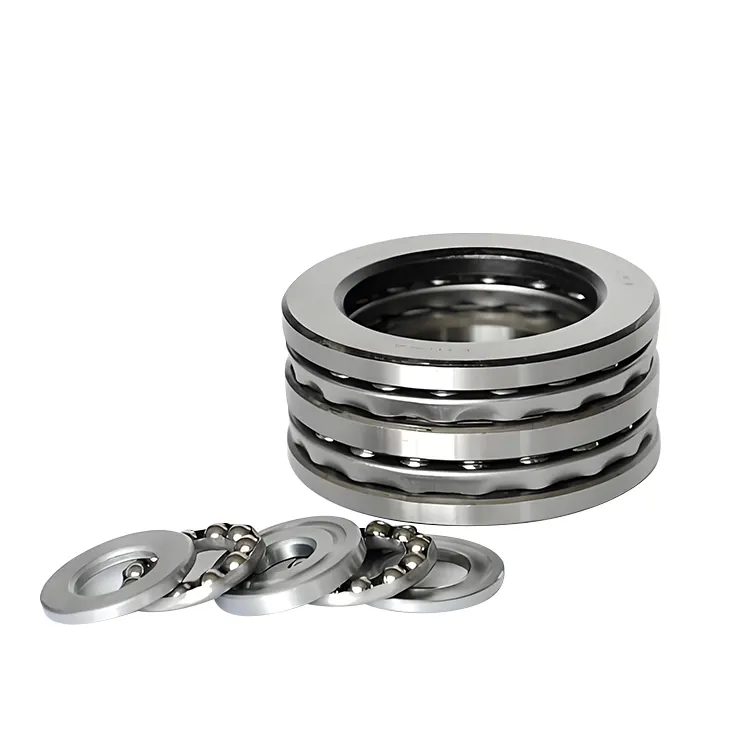The classification of Ball Bearing
2025-05-27
Ball bearings are classified based on several criteria such as design, load direction, number of rows, and specific applications. Here's a structured classification of ball bearings:
1. Based on Load Direction:
a. Radial Ball Bearings
Designed primarily to support radial loads (perpendicular to the shaft).
Examples:
Deep Groove Ball Bearings (most common type)
Angular Contact Ball Bearings (can also support axial loads)
b. Thrust Ball Bearings
Designed to support axial loads (parallel to the shaft).
Not suitable for radial loads.
Examples:
Single Direction Thrust Ball Bearings
Double Direction Thrust Ball Bearings
2. Based on Number of Rows:
a. Single Row Ball Bearings
Most common type.
Simple construction, suitable for moderate loads.
b. Double Row Ball Bearings
Higher load-carrying capacity.
Can handle both radial and axial loads.
3. Based on Contact Angle:
a. Deep Groove Ball Bearings
Small contact angle.
Can handle radial and light axial loads.
High speed capability.
b. Angular Contact Ball Bearings
Larger contact angle (15°, 25°, etc.).
Can handle combined radial and axial loads.
Typically used in pairs or sets for greater axial load support.
4. Based on Application or Special Design:
a. Self-aligning Ball Bearings
Can accommodate misalignment between the shaft and housing.
Common in applications where shaft deflection or misalignment is a concern.
b. Miniature and Instrument Ball Bearings
Very small in size.
Used in precision instruments, medical devices, etc.
c. High-Speed or Precision Ball Bearings
Used in applications like CNC machines, turbines, etc.
Extremely accurate and capable of high RPM.

d. Ceramic Ball Bearings
Balls made of ceramic (e.g., silicon nitride).
Lighter, lower friction, corrosion resistant.
Ideal for high-speed and high-temperature applications.
5. Based on Material:
Steel Ball Bearings (most common – chrome steel)
Stainless Steel Bearings (for corrosion resistance)
Ceramic Bearings (lightweight, high performance)
Hybrid Bearings (ceramic balls + steel races)
If you are interested in our products or have any questions, please feel free to contact us and we will reply you within 24 hours.


